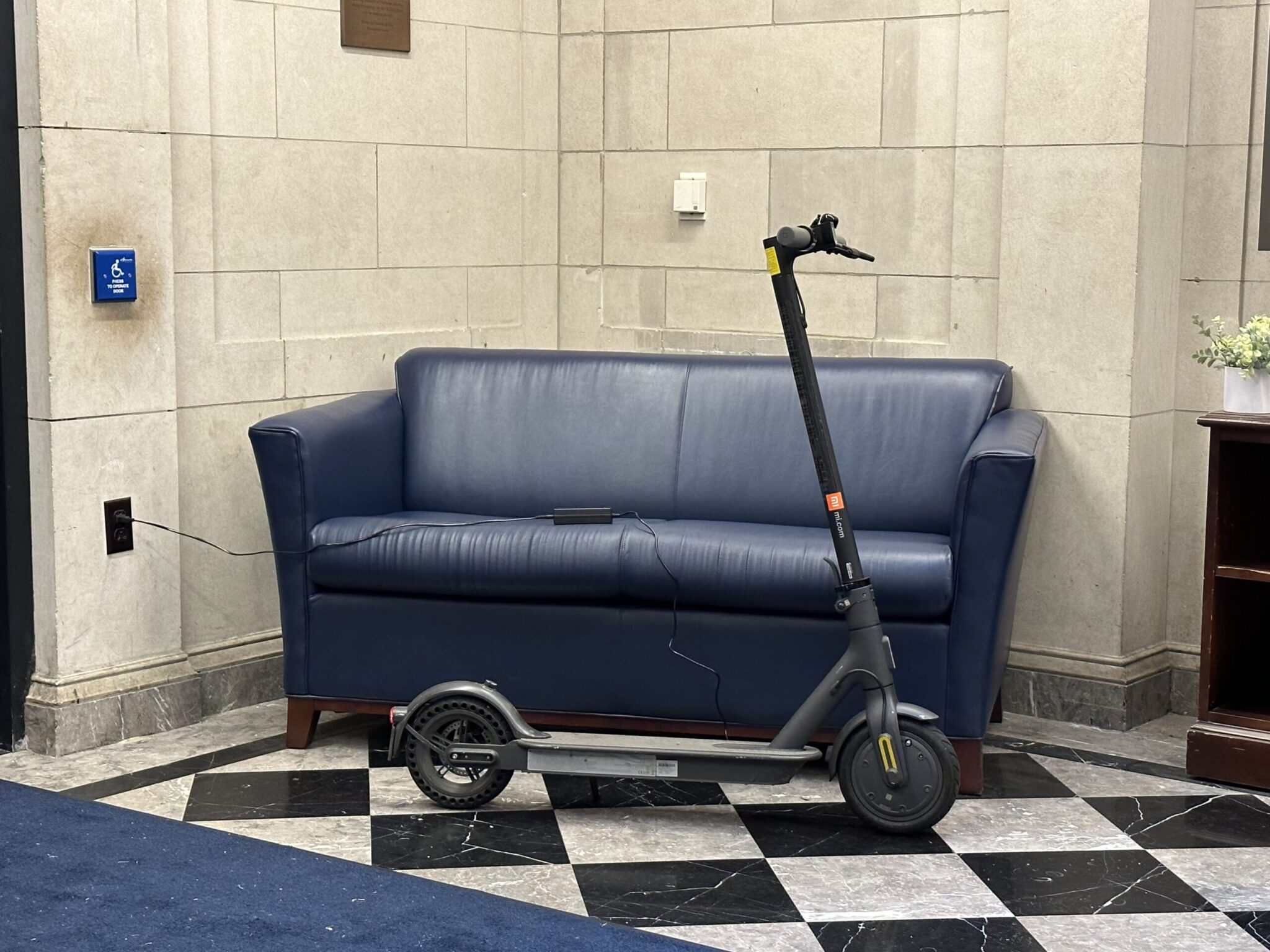Students reflect on University’s campus e-scooter ban
Starting this semester, the University banned battery-powered micro-mobility devices from campus residential spaces. Students – many of whom already purchased these devices during previous semesters – have called the ban into question.

Collyn Robinson, Staff Photographer
The University’s sidewalks look different this semester.
By last spring, the sight of Yalies perched atop their electric scooters had become all but commonplace. But following the recent electric-scooter ban within University residential spaces, the future of campus transportation remains uncertain.
Two weeks before the start of fall classes, Yale Public Safety sent an email to the campus community saying that electric vehicles would no longer be allowed in or on any University residential properties — including communal campus spaces, undergraduate student dormitories and their associated courtyards. The email said that these devices, which had already been banned in graduate student dormitories, pose “a severe fire and safety hazard” when stored and charged in “densely populated residential spaces.”
The University noted, however, that approved mobility devices for those with disabilities are exempt from the new policy.
“I was pretty disappointed — I used my scooter almost every day, and I thought that Yale was slightly conflating the danger of electric scooters in general with bad storage and maintenance practices on the part of some individual students,” Jake Berg ’26 wrote to the News.
Because the email came after many students had already moved back to New Haven, the University offered to help students store vehicles that were on campus at the time of the announcement.
Despite such efforts, some students have expressed frustration with the last-minute change in policy.
“I was really concerned,” Mateo Rice ’25 — who uses an electric longboard — wrote to the News. “I use my board on a daily basis so the policy change was going to drastically impact my routine.”
Rice, a member of the Yale men’s basketball team, told the News that his electric vehicle helps him travel to practices and classes more easily.
Danny Wolf ’26, another student-athlete on the men’s basketball team, agreed with Rice and said he was “confused” by the decision.
The policy change came just three months after an e-bike battery caught on fire in a New York City bicycle repair shop. According to the New York City Fire Commissioner, there have been over 100 battery-related fires thus far in 2023 and over 200 lithium-ion battery fires in 2022.
Columbia University banned e-scooters from its housing facilities in 2021 over similar fire concerns to those cited in the Yale announcement. Harvard University also restricted student use of micro mobility devices before the 2022-23 academic year.
Nevertheless, some students have raised questions about the University’s electric vehicle policy given that it has not banned other lithium-battery-powered devices.
“I think it’s a bit unreasonable to say all electric vehicles are a ‘significant fire hazard,’” Roshan Klein-Seetharaman ’25 wrote to the News. “Batteries are ubiquitous in modern life, and just as a phone or laptop battery could be a hazard if it was constructed poorly or damaged, so could a scooter battery.”
Klein-Seetharaman told the News that instead of outright banning these vehicles on campus, the University could instead inspect devices that use these types of batteries and certify them as safe for on-campus use.
Other students, like Berg, agreed with Klein-Seetharaman.
Berg said that he believes these vehicles pose little safety risk if stored properly in a cool, dry place. However, he also told the News that he understands the University’s decision.
“I had known for a while that Yale was likely to do something about the issue, and it didn’t seem like an incredibly unreasonable decision to me on Yale’s part,” Berg said.
Despite the inconveniences that some electric vehicle-users reported following the ban, several students interviewed by News said that they have begun to adapt to the change.
Rice now stores his e-longboard off-campus, and Berg acquired a non-electric scooter. Klein-Seetharaman took the University up on its offer to store his vehicle until he could bring it home.
“Now I just need to plan more time for some of the lengthier walks across campus,” Wolf said.
The first mass-produced e-scooter was the 1996 Peugeot Scoot’Elec.







